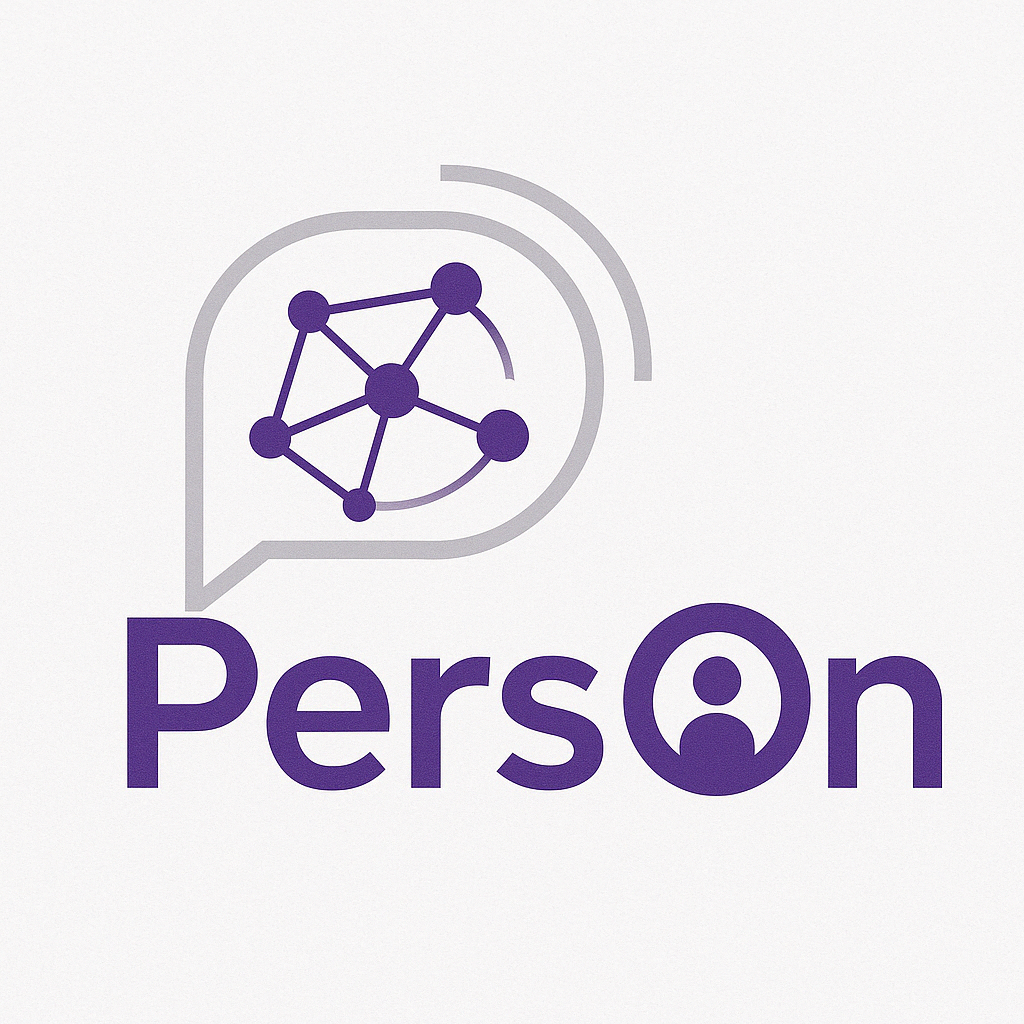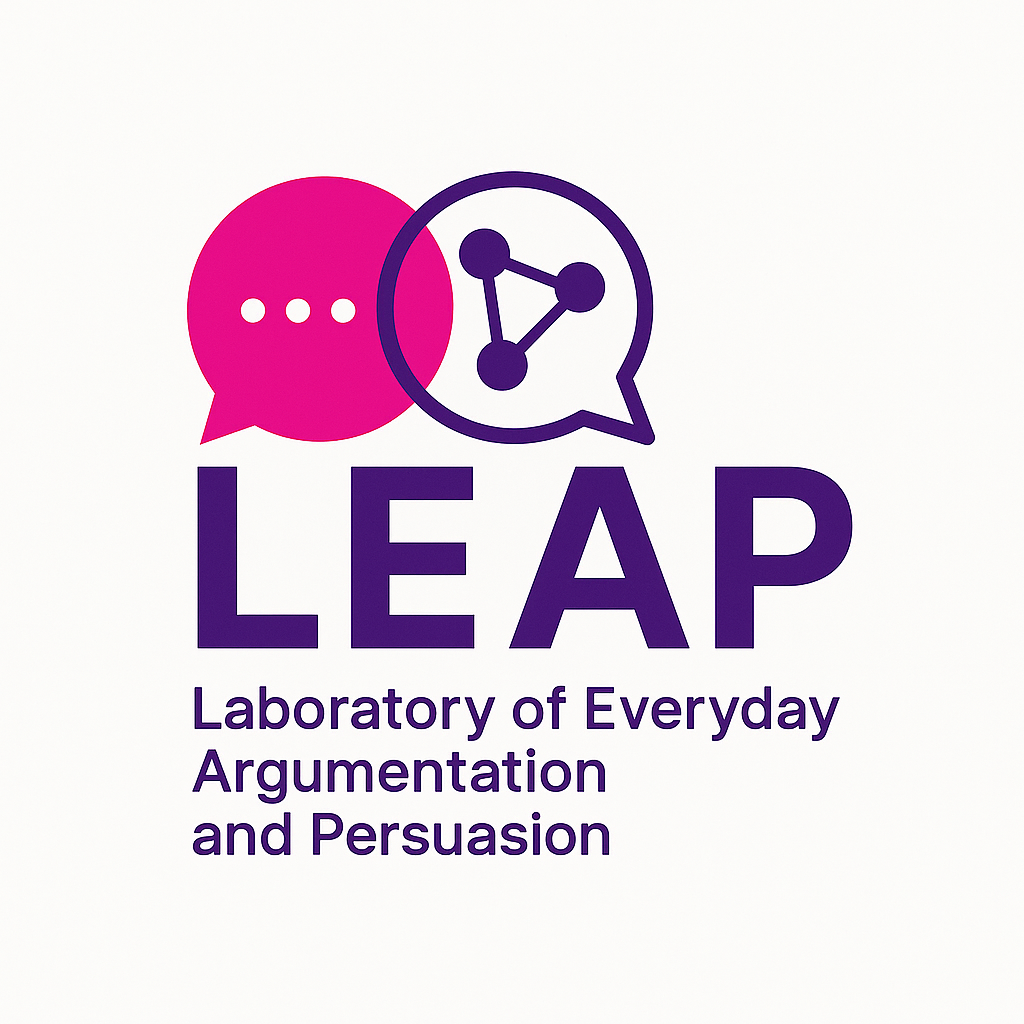PersOn: A Pragmatic Model of Persuasion in Online Communities
Funded by National Science Centre 2024/54/E/HS1/00161 (Sonata Bis) 2025-2030
What makes an argument persuasive in online communities? Is it the evidence presented (logos), the emotional appeal (pathos), or the speaker’s credibility (ethos)? The PersOn project investigates how persuasion works in dialogical, interactive settings across online communities. We propose a new Cognitive-Computational Pragmatic Model of Persuasion, focusing not only on what is said, but on who says it, to whom, and in what interactional context.
Scientific Goals
PersOn develops an interdisciplinary model grounded in linguistic pragmatics, argumentation theory, rhetoric, affective science, and computational linguistics. It explores how phatic and emotive language functions—often ignored in classical models—contribute to the strength of arguments online. Our key research questions include:
- How do traditional pragmatic models apply to persuasive dialogue online?
- What factors affect information spread in online communities?
- What dialogical elements enhance argument strength?
- How can agent-based modeling simulate persuasive dynamics?
- How do psychological user traits influence persuasion?
- How do emotions and pragmatic cues interact in perception of argument strength?
Two experimental hypotheses:
- H1: Phatic function increases perceived argument strength.
- H2: Emotional synchrony between users enhances argument strength.
Why It Matters
Online communication is different. Arguments unfold over multiple turns. They are embedded in relationships, emotional tone, and shared history. Building on prior work—including the Computational Pathos project—PersOn fills a gap by focusing on the interactional context of digital argumentation.
State of the Art
We build on classic and modern pragmatic theory (Grice, Searle, Sperber & Wilson), as well as research in dialogical argumentation and affective science. The work expands the influential ideas of Douglas Walton, integrating computational and psycholinguistic methods to examine how emotional appeals operate within specific dialogue types online.
Innovative Contribution
This project is the first to integrate large-scale data analysis, annotation of dialogical pragmatics, user-level modeling, and psycholinguistic experimentation in a unified framework. It positions phatic and emotive functions—not just logical structure—at the center of analysis.
Impact
PersOn will contribute to three disciplines:
- Pragmatics: By proposing a new interactional model of persuasion.
- Computational linguistics: By offering pragmatic annotation frameworks and tools.
- Psychology: By providing cognitive insights into how persuasive strength is perceived.
All data, tools, and guides will be published in open access wherever possible.
How the Project Works
PersOn integrates theory, computation, and psycholinguistics through six interconnected work packages:
- WP1 & WP6: Theory building in pragmatics and rhetoric
- WP2 & WP4: Computational modeling and NLP
- WP3 & WP5: Psycholinguistic experiments and statistical validation
Data sources: Reddit, X (Twitter), and published corpora (5M+ posts). Tools: Transformer-based models (BERT, LLAMA, GPT), dialogue annotation, speech act classification, and agent-based simulations.
Risk Management
- Data availability: We will use publicly accessible Reddit and X data or open datasets.
- Annotation reliability: Analysts will be trained in workshops, IAA checks will be performed.
- Recruitment for experiments: AMU’s Psychology Faculty provides institutional support and participant pools.
Our Team
The project team includes:
- Principal Investigator (PI): Dr Barbara Konat, a specialist in natural language argumentation and interdisciplinary project leadership.
- Post-Doc: Expert in argumentation theory, pragmatics, and NLP.
- PhD1: Focused on NLP and social network analysis.
- PhD2: Responsible for psycholinguistic experimentation.
- Auxiliary researcher: Supporting data collection, annotation, and infrastructure.
A New Research Group
The Laboratory of Everyday Argumentation and Persuasion (LEAP) will be established at Adam Mickiewicz University (AMU) in Poznań, within the Faculty of Psychology and Cognitive Sciences. This group builds on the PI’s previous work in Computational Pathos and responds to the need for interdisciplinary research on online persuasion. The lab will serve as a hub for linguists, psychologists, and computational scientists interested in how real dialogue functions in digital spaces.

